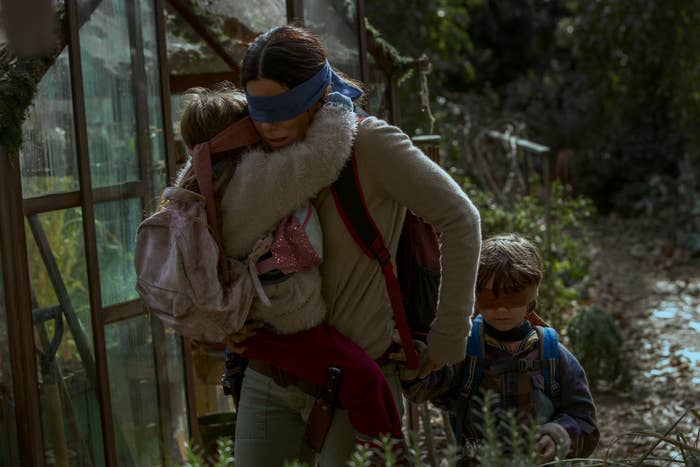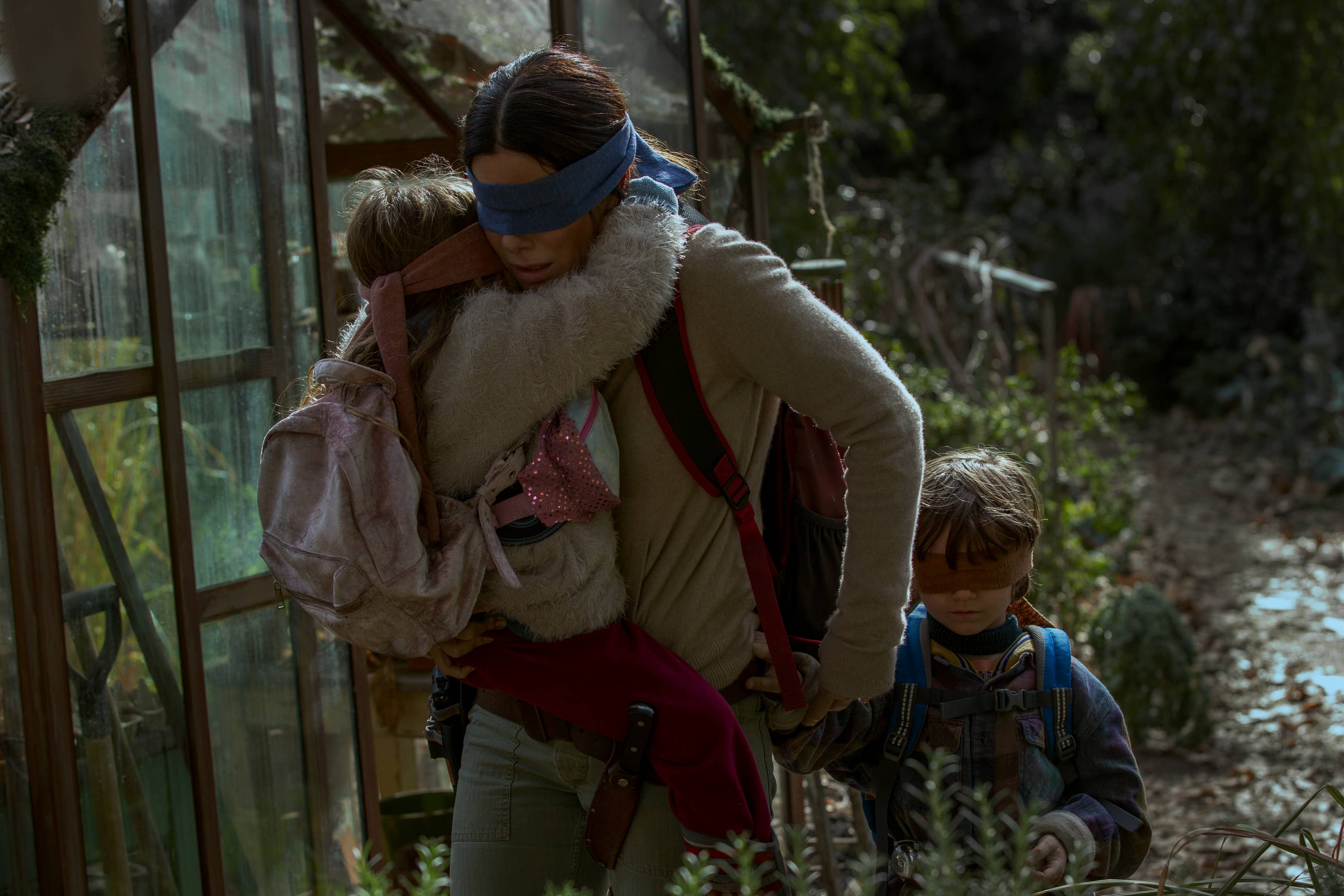
If you haven't seen Bird Box on Netflix yet, it's best that you leave this post now, instead of running the risk of accidentally spotting some spoilers. We will also include a meme below with a vaguely familiar, non-spoilery reference to the film to make sure that your eyes don't unintentionally wander too far down.
Now that we're all on the same page, let's discuss the ending of the film. Following a harrowing journey down the rapids, and some nerve-racking moments riddled with temptation in the woods, Malorie (Sandra Bullock) and her two kids find themselves at a school for the blind. Most of the institute's inhabitants were blind and impervious to the epidemic impacting the world. It was a minuscule yet "more positive" change in comparison to the book written by Josh Malerman, which has Malorie finding out that some people inside the school for the blind gouged out their own eyes.
In an interview with Polygon, Bird Box director Susanne Bier reveals why she chose to go in that direction. "The movie is slightly more positive," she said. "The movie is, in many aspects, different from the book, but it’s also very rooted in the book. The book also has a kind of positive ending and I would not have wanted to do an apocalyptic movie that didn’t have a hopeful ending. In a way, pretty much everything I’ve done has had some sort of a hopeful ending."
Bier explains that she tries to avoid making films with a "completely bleak point of view," and took that same approach with Bird Box. "I’m not particularly interested for the audience to leave, from the cinema or their own screen, with a kind of completely bleak point of view. That’s not really what I believe in," she said. "And so for me it was key, and part of what made me interested in it, was that that if this scary, dystopian story, which actually has a hopeful undercurrent ... there is a hopefulness in trust. That is a hopefulness in love. There is a hopeful note in certain values that I really appreciate it. And I thought that was hugely important."

